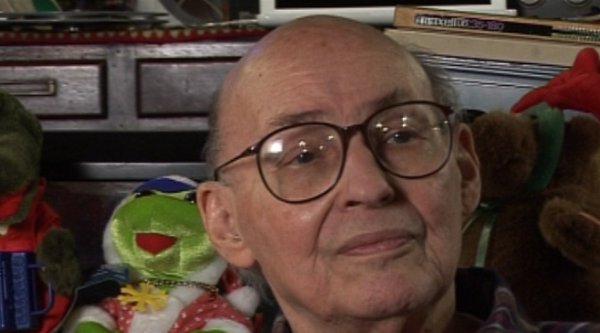NEXT STORY

Stanley Kubrick forgets he made Dr Strangelove
RELATED STORIES

NEXT STORY

Stanley Kubrick forgets he made Dr Strangelove
RELATED STORIES


|
Views | Duration | |
|---|---|---|---|
| 91. The impact of the Society of Mind | 1672 | 03:06 | |
| 92. Why the Society of Mind is crucial for understanding... | 1641 | 01:56 | |
| 93. A theory of why evolution is a slow process | 1660 | 03:15 | |
| 94. Biological plausability for the Society of Mind theory | 1508 | 04:04 | |
| 95. Advising Stanley Kubrick on 2001: A Space Odyssey | 2 | 1920 | 02:51 |
| 96. Stanley Kubrick forgets he made Dr Strangelove | 2 | 1937 | 01:38 |
| 97. What was Stanley Kubrick like? | 2 | 2328 | 01:03 |
| 98. Stanley Kubrick scraps the tetrahedron | 1 | 1894 | 02:11 |
| 99. I created part of 2001: A Space Odyssey | 1 | 1750 | 00:46 |
| 100. Warren McCulloch: For whom the world was a stage | 1777 | 04:25 |


I’m trying to remember... one day, he just turned up. And this was before he developed the fear of flying, I guess. 'Cause... 'cause... and he was going to make this movie and he wanted to know the state of computer graphics because he thought that this movie would have the latest in computer graphics. And he had heard that we were... had some and that Livermore had some and a few places... University of Utah had some. And so, he was making a little world tour to find out what could be done, because he... his plan was to... if there was really good computer graphics, then a lot of the movie could be made of that. And as you probably know, he found out everything that had been going on and... the end of the story is that he decided the animators... he made the correct decision. The animators were better and all of the little flickering things on that screen were drawn by hand by professional artists and animators and they came out fine and that was that, but he also was intrigued by artificial intelligence and of course, Arthur Clarke had been interested in that all along and... that was woven into the story. So, he invited me to come out to the... what was it called? Yea, something... to the studios. And... it was fascinating because first, he wanted me to play chess with him and I turned it down because I had a history of not playing chess very well. And, but we talked a lot and he didn’t tell me anything about the story exactly, but he wanted to get the background right so... the main example was, 'Will... by 2001, do you expect computers will be able to speak coherently?' And I said: 'I should think that by that time their voices will be very good and they’ll be nicely articulated, but I doubt that they’ll understand what they’re saying very well.' And that turned out to be true as a matter of fact.
Marvin Minsky (1927-2016) was one of the pioneers of the field of Artificial Intelligence, founding the MIT AI lab in 1970. He also made many contributions to the fields of mathematics, cognitive psychology, robotics, optics and computational linguistics. Since the 1950s, he had been attempting to define and explain human cognition, the ideas of which can be found in his two books, The Emotion Machine and The Society of Mind. His many inventions include the first confocal scanning microscope, the first neural network simulator (SNARC) and the first LOGO 'turtle'.
Title: Advising Stanley Kubrick on "2001: A Space Odyssey"
Listeners: Christopher Sykes
Christopher Sykes is a London-based television producer and director who has made a number of documentary films for BBC TV, Channel 4 and PBS.
Tags: University of Utah, Lawrence Livermore National Laboratory, 2001: A Space Odyssey, Stanley Kubrick, Arthur Clarke
Duration: 2 minutes, 52 seconds
Date story recorded: 29-31 Jan 2011
Date story went live: 12 May 2011